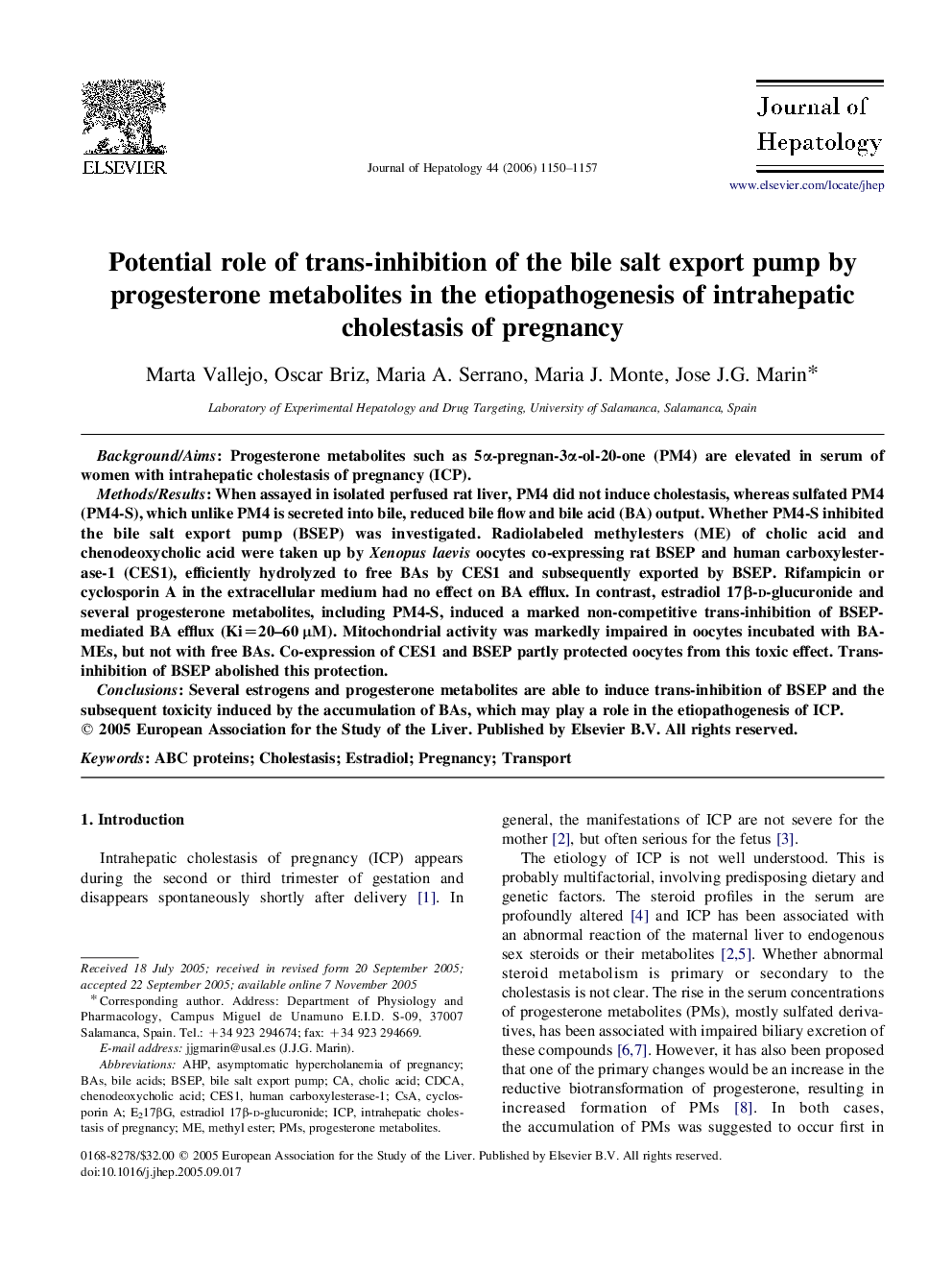| Article ID | Journal | Published Year | Pages | File Type |
|---|---|---|---|---|
| 3315626 | Journal of Hepatology | 2006 | 8 Pages |
Background/AimsProgesterone metabolites such as 5α-pregnan-3α-ol-20-one (PM4) are elevated in serum of women with intrahepatic cholestasis of pregnancy (ICP).Methods/ResultsWhen assayed in isolated perfused rat liver, PM4 did not induce cholestasis, whereas sulfated PM4 (PM4-S), which unlike PM4 is secreted into bile, reduced bile flow and bile acid (BA) output. Whether PM4-S inhibited the bile salt export pump (BSEP) was investigated. Radiolabeled methylesters (ME) of cholic acid and chenodeoxycholic acid were taken up by Xenopus laevis oocytes co-expressing rat BSEP and human carboxylesterase-1 (CES1), efficiently hydrolyzed to free BAs by CES1 and subsequently exported by BSEP. Rifampicin or cyclosporin A in the extracellular medium had no effect on BA efflux. In contrast, estradiol 17β-d-glucuronide and several progesterone metabolites, including PM4-S, induced a marked non-competitive trans-inhibition of BSEP-mediated BA efflux (Ki=20–60 μM). Mitochondrial activity was markedly impaired in oocytes incubated with BA-MEs, but not with free BAs. Co-expression of CES1 and BSEP partly protected oocytes from this toxic effect. Trans-inhibition of BSEP abolished this protection.ConclusionsSeveral estrogens and progesterone metabolites are able to induce trans-inhibition of BSEP and the subsequent toxicity induced by the accumulation of BAs, which may play a role in the etiopathogenesis of ICP.
